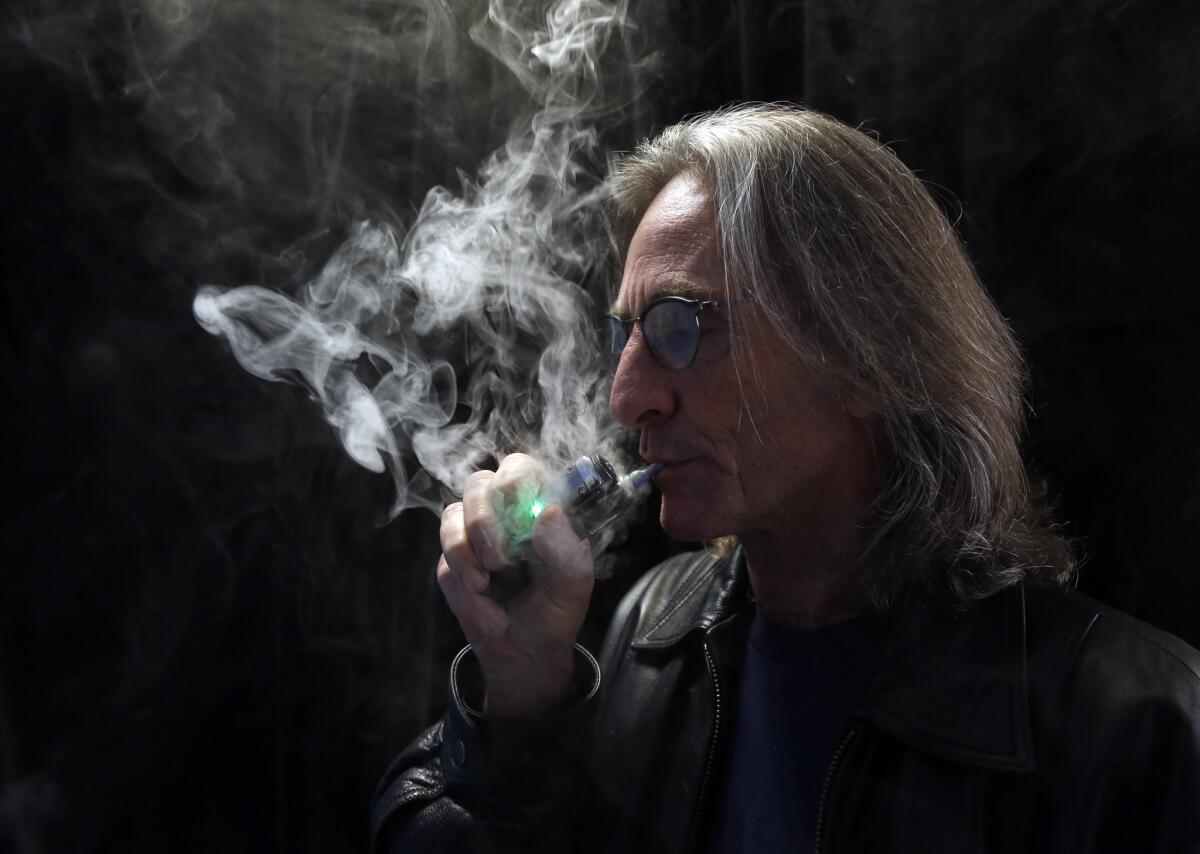Overreacting to e-cigarettes

Los Angeles may soon follow the lead of major cities, schools and universities across the nation in banning electronic cigarettes in certain public spaces.
Several City Council members, backed by City Atty. Mike Feuer, introduced a motion Wednesday to prohibit the use of e-cigarettes in places where smoking tobacco is already illegal, such as restaurants, libraries, daycare centers, public parks, playgrounds and beaches.
A certain amount of caution is justified. E-cigarettes, which often look like tobacco cigarettes, are battery-powered devices that heat nicotine and other chemicals into a vapor that the user inhales. The nicotine is habit-forming, and it is certainly not something your doctor would urge you to ingest. E-cigarettes have only been sold in the U.S. since 2007, but sales are expected to hit nearly $2 billion this year.
YEAR IN REVIEW: Highs and lows from Obama’s roller-coaster year
Yet there is still little definitive research that demonstrates the health and safety risks from “vaping” or from inhaling someone else’s vapor. So should municipalities treat e-cigarette vapor the same as secondhand smoke from tobacco products, even though there is no evidence yet that it’s as dangerous?
Yes and no. So far, there is enough research to raise concern about exposure to secondhand vapor in close quarters. One German study found low levels of toxins in the vapor, and this year, the German Cancer Research Center concluded that harm to secondhand inhalers couldn’t be ruled out because of the presence of metals and carcinogenic chemicals in the vapor. If the purpose of smoking bans is to protect nonsmokers — or in this case, non-vapers — from being forced to inhale against their will, then government agencies should be prudent and prohibit vaping indoors, just as the Federal Aviation Administration has prohibited it on airplanes.
But in the absence of further information, it seems like overkill to ban e-cigarettes outdoors where the vapors dissipate quickly. Before restricting a personal liberty like puffing on an e-cigarette at a public park, there should at least be some proof that the activity harms others. And that proof isn’t there yet.
There’s an understandable urge to crack down on e-cigarettes for fear of potential health impacts and their possible use as a gateway to tobacco. But fear isn’t a good basis for regulation. Research is. And until there is more conclusive research, government agencies should be wary of overreacting.
More to Read
A cure for the common opinion
Get thought-provoking perspectives with our weekly newsletter.
You may occasionally receive promotional content from the Los Angeles Times.






